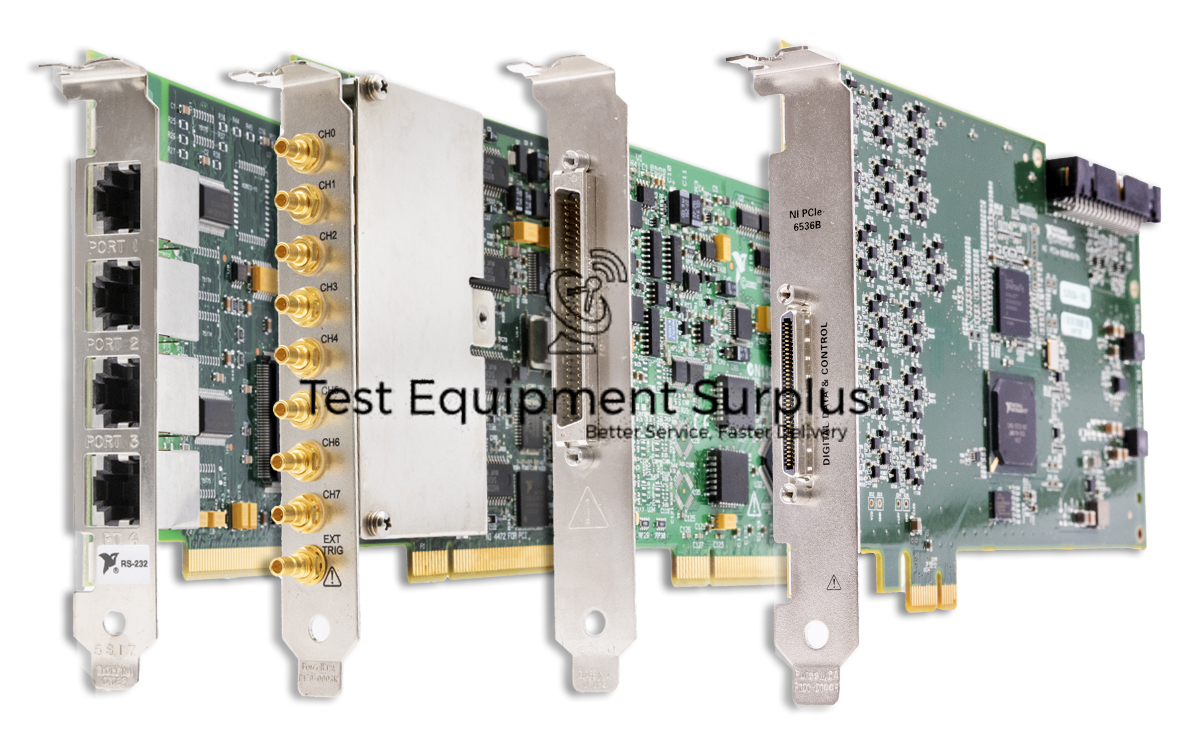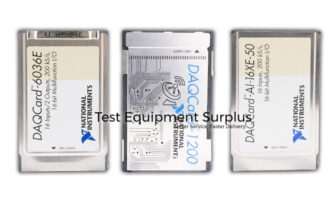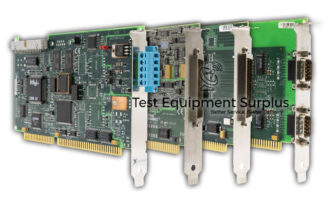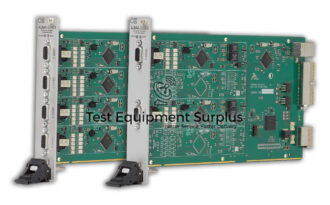Description
The National Instruments PCIe-GPIB/LP GPIB Instrument Control Device, part number 780575-01, is a high-performance device compatible with PCI Express 1.0a and featuring the IEEE 488.2 interface. It is powered by the robust NI TNT ASIC, ensuring efficient and reliable performance. This device also supports HS488, enabling high-speed data transfers.
Equipped with a TI XI02000a PCI Express Bridge, the device has a typical power requirement of 320 mA at 3.3 V, with a maximum of 500 mA at the same voltage. It promises impressive data transfer rates, achieving up to 1.5 MB/s in IEEE 488 interlocked handshake mode and up to 7.9 MB/s in HS488 handshake mode.
The device includes a 24-pin (female) IEEE connector and a standard x1 PCIe connector, catering to a variety of setups. It comes with NI-488.2 driver software, which ensures compatibility with prominent software such as LabVIEW, Measurement Studio, and LabWindows/CVI, among others. This makes the National Instruments PCIe-GPIB/LP a versatile solution for instrument control in a wide range of application environments.
| Specification | Detail |
|---|---|
| Product Name | National Instruments PCIe-GPIB/LP GPIB Instrument Control Device |
| Part Number | 780575-01 |
| Compatibility | PCI Express 1.0a |
| Interface | IEEE 488.2 |
| ASIC | NI TNT |
| HS488 Support | Yes |
| PCI Express Bridge | TI XI02000a |
| Power Requirement (Typical) | 320 mA at 3.3 V |
| Power Requirement (Maximum) | 500 mA at 3.3 V |
| Data Transfer Rate (IEEE 488 interlocked handshake mode) | Up to 1.5 MB/s |
| Data Transfer Rate (HS488 handshake mode) | Up to 7.9 MB/s |
| Connector Type | 24-pin (female) IEEE, Standard x1 PCIe |
| Driver Software | NI-488.2 |
| Compatible Software | LabVIEW, Measurement Studio, LabWindows/CVI, etc. |
| Power Consumption (Typical Conditions) | 1.1 |
Question 1: What are the data transfer rates of the National Instruments PCIe-GPIB/LP GPIB Instrument Control Device when operating in IEEE 488 interlocked handshake mode and in HS488 handshake mode?
Answer 1: The National Instruments PCIe-GPIB/LP GPIB Instrument Control Device achieves a data transfer rate of up to 7.9 MB/s when operating in HS488 handshake mode.
Question 2: What is the data transfer rate of the National Instruments PCIe-GPIB/LP GPIB Instrument Control Device when operating in HS488 handshake mode?
Answer 2: The typical power consumption of the National Instruments PCIe-GPIB/LP GPIB Instrument Control Device, part number 780575-01, is 320 mA at 3.3 V, with a maximum current requirement of 500 mA at the same voltage.
Question 3: What are the power requirements and data transfer rates of the National Instruments PCIe-GPIB/LP GPIB Instrument Control Device, part number 780575-01?
Answer 3: The National Instruments PCIe-GPIB/LP GPIB Instrument Control Device, part number 780575-01, requires 320 mA at 3.3 V typically, with a maximum of 500 mA, and offers data transfer rates of up to 1.5 MB/s in IEEE 488 interlocked handshake mode and up to 7.9 MB/s in HS488 handshake mode.
Question 4: What is the typical power consumption and maximum current requirement of the National Instruments PCIe-GPIB/LP GPIB Instrument Control Device with part number 780575-01?
Answer 4: The National Instruments PCIe-GPIB/LP GPIB Instrument Control Device achieves data transfer rates of up to 1.5 MB/s in IEEE 488 interlocked handshake mode and up to 7.9 MB/s in HS488 handshake mode.
Question 5: What are the data transfer rates of the National Instruments PCIe-GPIB/LP GPIB Instrument Control Device in both IEEE 488 interlocked handshake mode and HS488 handshake mode?
Answer 5: The National Instruments PCIe-GPIB/LP GPIB Instrument Control Device achieves data transfer rates of up to 1.5 MB/s in IEEE 488 interlocked handshake mode and up to 7.9 MB/s in HS488 handshake mode.




